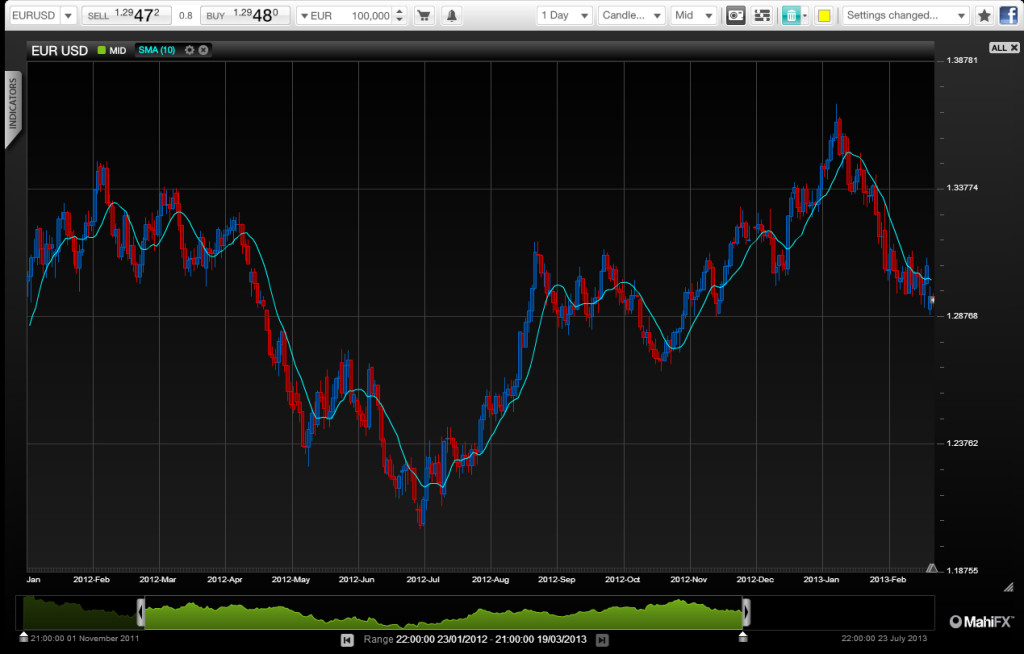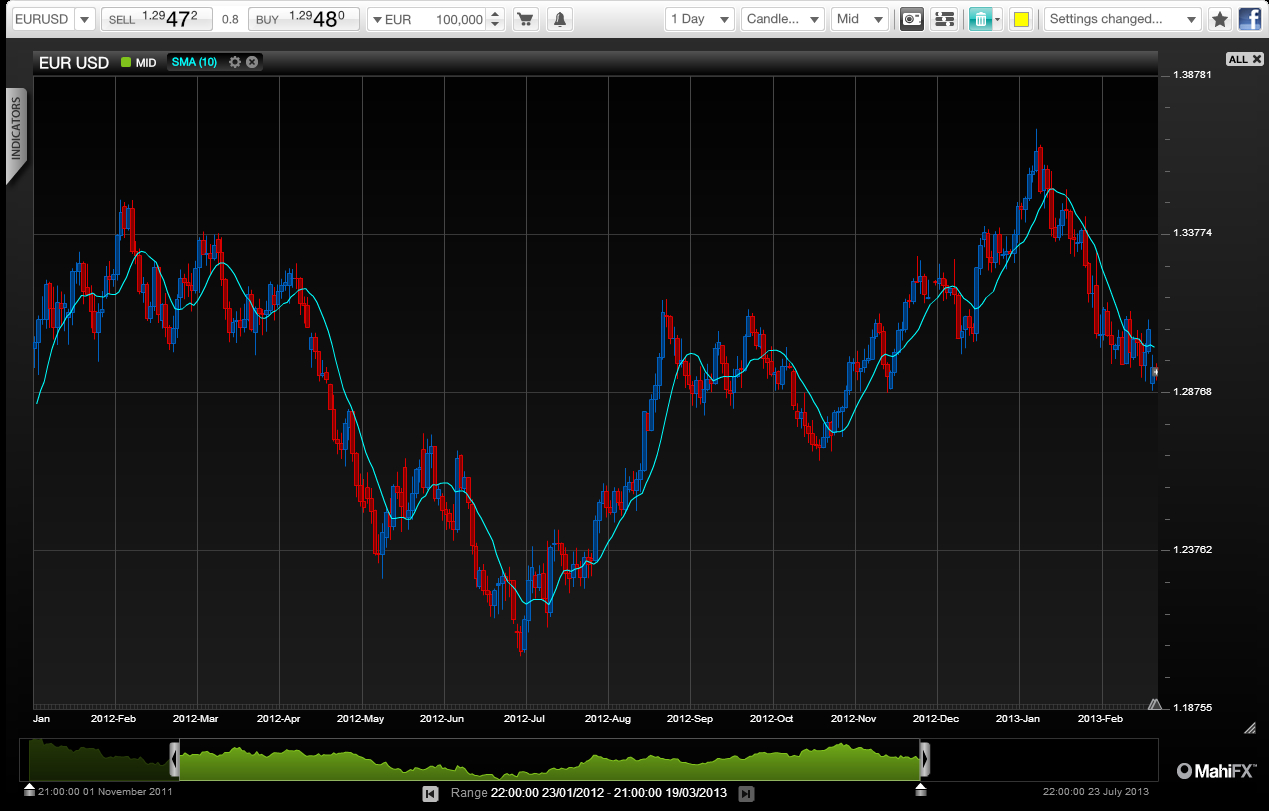The EUR once again needs to be viewed as a high-risk currency with existential issues following measures by Eurozone policy makers and the IMF to make Cypriot savers pay for the bailout of their country. This could haunt the Eurozone with a vengeance should other much larger members need to be rescued.
The novel idea of getting bank savers to pay for the bailout of their country and banks marks a new phase in the financial crisis and an unfortunate one. It now raises the spectre of bank runs, frightening scenes normally associated with economic collapse and the great depression of the 1930s.
All through this crisis it is exactly that kind of loss of public confidence policy makers have wisely been striving to avoid by assuring depositors that their money is safe regardless of what happens to the banks where their money is being held. Cypriot savers thought their money was safe.
EURUSD set for another move down?

The next time a Eurozone country looks likely to need rescuing – think of much larger Spain and Italy – by its peers and supra-nationals the most logical step for depositors in that country will be to withdraw their money from banks as fast as they can. Some are no doubt already doing so.
If that’s how depositors in other peripheral Eurozone states decide to react it will deeply complicate rescue efforts. The European Central Bank’s yet to be tapped Outright Monetary Transactions (OMT) programme is designed to stabilise prices of peripheral Eurozone sovereign bonds, should they face a sell-off.
If that’s accompanied by bank runs, a manageable crisis, could escalate to levels that even the ECB, the Eurozone and the international community will struggle to contain in a globalised financial system prone to domino effects. Under such circumstances capital flight out of the Eurozone could be intense, which could see the EUR plunge across the board and may require external help from countries such as the US, China and Japan to stabilise it.
Eurozone leaders have injected a new negative dynamic into the Eurozone crisis and one which further undermines confidence in peripheral states and their financial systems. It could also cause further disparities in interest rates paid by banks and other borrowers within the Eurozone – exactly the situation the ECB has been keen to avoid.
Bailing out Russian crooks who keep money in Cyprus might well be distasteful to other Eurozone countries, but they should have let pragmatism prevail. Instead there is now the far worse alternative of adding further complications to the Eurozone crisis, which could lead to bank runs, sovereign bankruptcies and exits from the Euro.
If the Cyprus situation does morph into a wider crisis of confidence in the Eurozone, it may force yet more integration at breakneck speed. A strong Eurozone wide depositor protection scheme and unified banking regulation may now be needed to counteract worries over bank runs. But such measures are difficult and normally take years to implement.
If not done future historians may come to view measures to tax Cypriot savers as a milestone towards the demise of the Euro.
